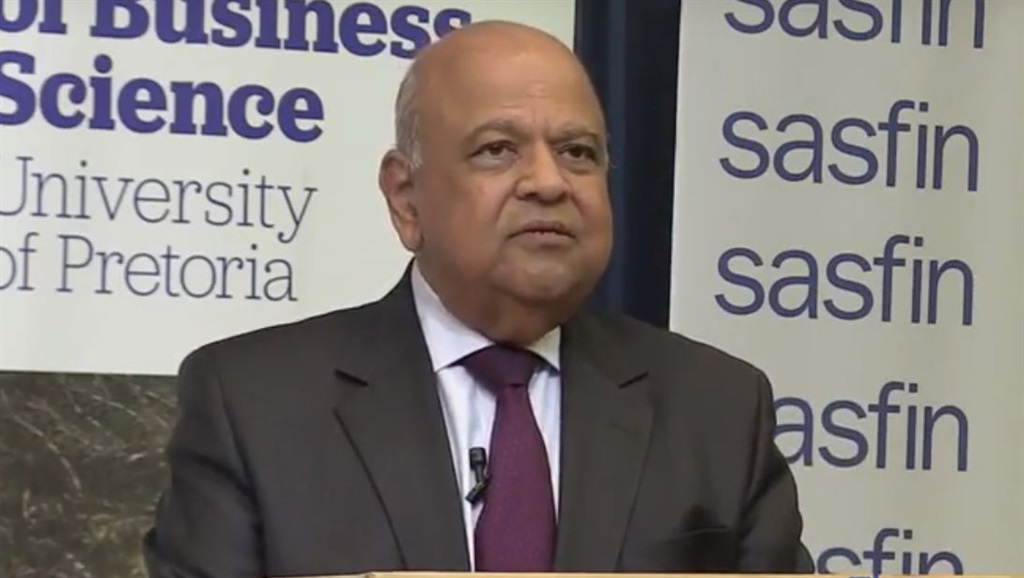
The only way to shift those who behave arrogantly in power is through active citizenry – this is the number one weapon in the fight against state capture. But it can be done, and dedicated leaders will be able to reverse the scourge.
These were the views of ANC national executive committee member and former minister of finance, Pravin Gordhan, who spoke at a recent Gordon Institute of Business Science ethics and governance think tank forum.
“We have a very urgent task ahead of us as South Africans – to recapture the captured state,” he added.
Gordhan used his address to urge for a more active citizenry and an increasingly mobilised society against state capture.
“Shame and guilt per se won’t shift those who behave arrogantly in power. What is going to shift them is societal mobilisation,” he continued.
A higher level of awareness, along with higher levels of involvement in organised civil society would place the country in a better position to resist the abuse of power.
While the upper middle classes, whether black or white, were concerned about the safety of their wealth in South Africa and whether their children will be able to receive a proper education, Gordhan insisted that questions of how South Africans were to resist corruption and the abuse of power should accompany these concerns.
“How do we become more aware, citizens? How do we become mobilised into action? How do we all become active in one way or another to contribute to the realisation of the plans contained in the National Development Plan?”
Greed as a 21st century problem
The prevalence of materialism and consumerism and a lack of shame and guilt allowed for unrestrained greed to be a key driver for stealing in both the public and private sector.
“When those who behave with arrogance and impunity have their hands on the levers of power, whether corporate power or the power of government, then you have a toxic mix.”
Gordhan said greed was the underlying cause of the continuing scandal around the payment of social grants.
“An issue which concerns 17 million people has been bumped around between the courts and government departments. We have seen deliberate obfuscation and fabrications to the extent that the highest court in the land has essentially become a grant administrator.”
The director of the Gibs ethics and governance think-tank, Rabbi Gideon Pogrund, condemned the fact that some of South Africa’s leaders seemed to lack a moral compass and conscience from which a sense of guilt arises.
“They seem to be arrogantly indifferent and brazen, unmoved without a sense of shame. They refuse to resign despite public exposure of their dishonesty, corruption and incompetence, which is seen in one crisis and scandal after the other involving government departments and state-owned enterprises. This spirit of shamelessness above all else undermines the ethical foundations of our society and threatens our future.”
Despite this, the country still had some leaders with “extraordinary moral courage who are able to defy fearsome pressures and threats. This should inspire us during this time of anxiety,” he added.
State capture
State capture was “extensive”, Gordhan said, and covered many institutions, from law-enforcement agencies, fiscal organisations, and state-owned entities to government departments.
He said South Africa was unlike most developing countries in that it had never had to turn to the International Monetary Fund for assistance: “State capture is placing our fiscal sovereignty at risk because a group of gangsters want to get their hands on what belongs to South Africans.”
He explained that those who had the privilege of holding and benefiting from power, whether corporate or government power, wouldn’t give it up very easily.
“Partly because some know they will end up in jail sometime next year if there is a change in December, so obviously they are going to fight.”
However, Gordhan insisted that state capture was reversible.
“It is all about leadership. We have to get a team at the top that will approach issues of governance, business and labour in a different way. We need a massive transformation, and not just in a racial sense. We need a whole new economic dynamism.”
On the way forward
The majority of South Africans want a change in leadership of the ANC, Gordhan said, who can “show they are capable of leading the country to a different kind of economy, a more cohesive economy, and a socially just society that actually begins to live the values enshrined in the Constitution. Those sorts of things don’t emerge very easily, and there is a very real contest going on.”
The country needed a sense of unity of purpose, he continued.
“Putting a decisive, clear leadership in place will energise us all. A leadership who will take the decisions that are necessary and implement them quickly and effectively with a sense of urgency. In the new year we could see the country moving in a new direction and an increase in business and consumer confidence,” Gordhan said.
To ensure this happened, we must become an energised society, he added.
While activism wasn’t a culture that permeates every community in South Africa, “we all need to ask how we can contribute to this process and not just be passengers.”
“We have lost the Mandela shine we once had as a nation. We must decide what we want to be known for as a people, a society and as a nation. We have the opportunity to put the shine on again, and by our collective effort, we can make it.”
• City Press is a media partner of the Gibs forums




 Publications
Publications
 Partners
Partners








